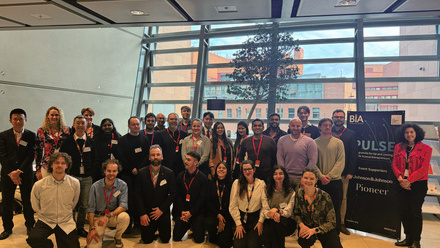Regulatory and data changes can incentivise innovation in life sciences
Guest blog by Pinsent Masons. Original article here.
A continuation of regulatory flexibilities deployed during the coronavirus crisis and the introduction of clear guidelines on the use of patient data in health research initiatives can help incentivise innovation in life sciences, legal experts have said.
Catherine Drew and Louise Fullwood of Pinsent Masons, the law firm behind Out-Law, were commenting after Pinsent Masons research highlighted industry's views on the link between innovation in life sciences and the underlying regulatory framework.
Pinsent Masons commissioned Meridian West to undertake interviews with 52 industry experts from across Europe in November last year.
Those individuals included senior executives and legal counsel, and respondents were spread across different types of organisations active in the sector, from originator product manufacturers, biotech companies and medtech providers, to generics, biosimilar manufacturers and academic or research organisations.
According to the result of the study, 75% of all respondents said they agree or strongly agree that regulators should assess whether any flexibilities enabled during the Covid-19 pandemic should be retained long-term.
Catherine Drew said: "An approach which has been utilised by both the European regulator, the European Medicines Agency (EMA), and the UK regulator, the Medicines & Healthcare products Regulatory Agency (MHRA) to seek to ensure fast approval of Covid-19 vaccines is rolling reviews, whereby data generated by the applicant is assessed by the regulator as it becomes available, rather than waiting for all the data to be available and reviewing in one consolidated assessment – the benefit of course being a speedier approval from start to finish."
"It is notable that the rolling review is a new assessment route to be implemented by the MHRA as part of the UK’s regulatory processes post Brexit. The route is available for novel medicines and is a clear attempt by the MHRA to speed access to the UK market of particularly innovative medicines. This approach clearly benefits industry, but perhaps more importantly patients will benefit from having access to these new medicines sooner," she said.
"Other regulatory flexibilities have been introduced, for example in relation to more efficient minor variations of marketing authorisations, and the desire is to retain these flexibilities, rather than return to the more time- and labour-intensive approaches pre-pandemic. Given that there has been no lessening of the regulatory standards to be met in relation to marketing authorisations for medicinal products, it seems reasonable to hope that the more efficient processes can remain when the pandemic has gone," Drew said.
Together with regulatory change or reform, increased collaboration was the most popular response from interviewees asked to identify the single most important change in the life sciences industry that could accelerate longer term innovation.
Often, effective collaboration within life sciences and across the wider research community too depends on the sharing and use of patient data. However, the rules on using patient data in medical research can vary across Europe, according to Louise Fullwood. One respondent to the Pinsent Masons study said a simplified data protection framework would help European life sciences match the impact US companies have in the market, while others said there was a need for greater harmonisation of regulation more generally across Europe.
Fullwood said: "Clients from outside the EU, and even those within the trading bloc, are horrified by the regulatory landscape around use of patient data. Although the General Data Protection Regulation (GDPR) was heralded as an attempt to achieve such harmonisation, including by allowing exemptions for secondary use of data for health research, its effectiveness in this regard was severely undermined by other provisions allowing for significant operative provisions to be either implemented or derogated from by individual member states. This has led to a patchwork of regulatory requirements around use of data in health research across Europe."
"The sub-optimum nature of this situation is increasingly recognised as a genuine factor in holding back innovation and the industry and researchers have been putting pressure on the regulators to try and address this. The European Data Protection Board recently published and adopted a response to a request from the European Commission for clarification on the consistent application of GDPR with a focus on health research. This initial response is to be followed by a set of guidelines, which are currently being prepared and due to be published later this year, on the processing personal data for scientific research purposes. It is very much to be hoped that these will have a positive effect on incentivising innovation," she said.





